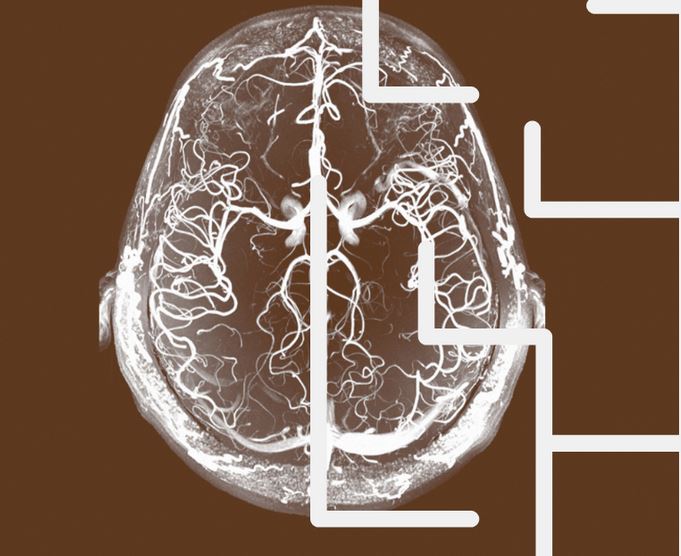Definition and Scope:
Aetiology, or etiology in American English, is the study of the causes and origins of diseases, conditions, phenomena, or concepts. It encompasses various disciplines, each applying the concept of causation to different areas of inquiry. Here’s a detailed exploration of aetiology across multiple fields:
1. Medical Aetiology
In medicine, aetiology refers to the investigation of the causes of diseases and medical conditions. This branch of medical science aims to understand the factors that contribute to the onset and development of health issues. Key aspects include:
- Genetic Factors:
- Inherited Traits: Some diseases are inherited through genes passed from parents to offspring. Genetic disorders such as cystic fibrosis or sickle cell anemia are directly linked to genetic mutations.
- Genetic Mutations: Changes in DNA can lead to conditions like cancer, where specific mutations contribute to tumor formation.
- Environmental Factors:
- Pathogens: Bacteria, viruses, fungi, and parasites can cause infectious diseases. For example, the aetiology of tuberculosis involves the bacterium Mycobacterium tuberculosis.
- Toxins and Pollutants: Exposure to environmental toxins, such as asbestos or heavy metals, can lead to conditions like lung cancer or lead poisoning.
- Lifestyle Factors:
- Diet and Nutrition: Poor dietary habits can contribute to conditions like obesity, diabetes, and heart disease.
- Physical Activity: Sedentary lifestyles are associated with increased risks of cardiovascular diseases and metabolic disorders.
Understanding the aetiology of diseases helps in diagnosis, prevention, and treatment, and guides public health policies and medical research.
2. Psychological Aetiology
Psychological aetiology focuses on the causes of mental health disorders. It explores how various factors contribute to the development of psychological conditions:
- Biological Factors:
- Neurotransmitters: Imbalances in brain chemicals like serotonin and dopamine can contribute to mood disorders such as depression and anxiety.
- Genetics: Family history and genetic predispositions play a role in conditions like schizophrenia and bipolar disorder.
- Environmental Factors:
- Trauma: Exposure to traumatic events, such as abuse or violence, can lead to post-traumatic stress disorder (PTSD) and other mental health issues.
- Stress: Chronic stress and adverse life experiences can impact mental well-being and contribute to disorders like generalized anxiety disorder.
- Social Factors:
- Family Dynamics: Dysfunctional family relationships and childhood neglect can influence the development of psychological conditions.
- Socioeconomic Status: Economic hardship and social inequality can contribute to mental health challenges.
Psychological aetiology helps in understanding the root causes of mental health issues and developing therapeutic approaches and interventions.
3. Historical and Mythological Aetiology
In history and mythology, aetiology examines the origins of myths, legends, and historical events. This study seeks to understand how stories and practices developed over time:
- Mythological Explanations:
- Natural Phenomena: Myths often explain natural occurrences like thunder or seasonal changes. For example, ancient Greeks attributed thunderstorms to Zeus’s anger.
- Cultural Practices: Legends may explain customs and traditions, such as the origins of festivals or rituals.
- Historical Origins:
- Cultural Development: Understanding the aetiology of cultural practices provides insights into the societal values and historical contexts that shaped them.
- Historical Events: Exploring the causes behind significant historical events, such as wars or revolutions, helps in understanding their impact on societies.
4. Linguistic Aetiology
In linguistics, aetiology relates to the study of the origins and evolution of words and language structures:
- Etymology:
- Word Origins: Etymology investigates the history and derivation of words. For instance, the word “hotel” comes from the French “hôtel,” which originally meant a townhouse.
- Semantic Changes: The study of how the meanings of words have evolved over time.
- Language Development:
- Language Families: Examining how languages develop and influence each other, such as the relationship between Latin and the Romance languages (Spanish, French, Italian).
- Language Contact: How languages borrow terms from each other and how new linguistic forms emerge.
5. Broader Implications of Aetiology
Understanding aetiology across different fields offers valuable insights and practical applications:
- Medical Research and Public Health: Identifying the causes of diseases helps in designing effective treatments, preventive measures, and health policies.
- Mental Health Interventions: Insights into psychological aetiology inform therapeutic strategies and mental health support systems.
- Cultural Understanding: Knowledge of historical and mythological aetiology enhances our appreciation of cultural heritage and societal development.
- Linguistic Evolution: Studying linguistic aetiology contributes to our understanding of language change and the dynamics of communication.
6. Aetiology in Epidemiology
In epidemiology, aetiology examines the causes of diseases within populations and the patterns of their spread. This branch is crucial for understanding and controlling public health issues:
- Disease Surveillance:
- Tracking Patterns: Epidemiologists track the incidence and prevalence of diseases to identify patterns and potential causes.
- Outbreak Investigation: Identifying the source and mode of transmission during outbreaks, such as foodborne illnesses or infectious diseases.
- Risk Factor Analysis:
- Behavioral Risk Factors: Assessing how behaviors like smoking or poor diet contribute to disease risk.
- Environmental Exposures: Studying how environmental factors such as pollution or occupational hazards impact disease rates.
- Preventive Measures:
- Vaccination and Screening: Developing preventive strategies based on understanding disease aetiology, such as vaccines for infectious diseases or screening programs for cancer.
- Public Health Interventions: Implementing interventions to mitigate identified risk factors and reduce disease burden.
7. Aetiology in Social Sciences
In social sciences, aetiology explores the causes behind social phenomena and behaviors. This approach provides insights into societal trends and issues:
- Social Behavior:
- Influences on Behavior: Investigating how social, economic, and environmental factors influence individual and group behaviors.
- Social Inequality: Examining the origins and effects of social inequalities, such as poverty, education disparities, and access to healthcare.
- Cultural Practices:
- Origins of Social Norms: Understanding how cultural practices and social norms develop and their impact on society.
- Traditions and Customs: Studying the historical and social factors that contribute to the formation and perpetuation of cultural traditions.
- Political and Economic Systems:
- System Development: Analyzing the aetiology of political and economic systems, including the causes of political instability or economic crises.
- Policy Implications: Informing policy development and social reforms based on an understanding of underlying causes and contributing factors.
8. Aetiology in Philosophy
Philosophically, aetiology explores the origins and fundamental causes of existence, knowledge, and concepts:
- Metaphysical Causes:
- Existential Questions: Examining the fundamental causes of existence and the nature of being.
- Conceptual Origins: Investigating the origins of abstract concepts such as justice, truth, and beauty.
- Epistemological Aetiology:
- Sources of Knowledge: Understanding the origins and validity of knowledge and belief systems.
- Philosophical Inquiry: Analyzing how different philosophical traditions address the causes and nature of human understanding.
9. Aetiology in Arts and Humanities
In the arts and humanities, aetiology delves into the origins and influences behind artistic and cultural expressions:
- Artistic Movements:
- Influence of Historical Events: Exploring how historical events and cultural shifts influence artistic movements and styles.
- Artistic Innovation: Understanding the factors that drive innovation and change in artistic practices.
- Literary Themes:
- Origins of Themes: Investigating the origins of recurring themes and motifs in literature and their cultural significance.
- Authorial Intent: Analyzing the causes behind an author’s choices and the impact of personal and societal influences on their work.
10. Aetiology in Religion and Spirituality
In religion and spirituality, aetiology examines the origins and causes of religious beliefs and practices:
- Religious Origins:
- Development of Beliefs: Studying the origins and development of religious beliefs and practices across different cultures.
- Symbolism and Rituals: Understanding the causes behind the creation and evolution of religious symbols and rituals.
- Spiritual Practices:
- Influences on Practice: Exploring how cultural, historical, and personal factors influence spiritual practices and experiences.
- Religious Institutions: Analyzing the origins and development of religious institutions and their role in shaping spiritual beliefs.
Aetiology, as a multidisciplinary concept, provides valuable insights into the causes and origins of various phenomena across different fields. Whether examining the origins of diseases, psychological conditions, social behaviors, artistic expressions, or religious beliefs, aetiology helps to uncover the underlying factors that shape our understanding of the world. By exploring these origins, we gain a deeper appreciation of how different factors contribute to the complexities of human experience and knowledge.




